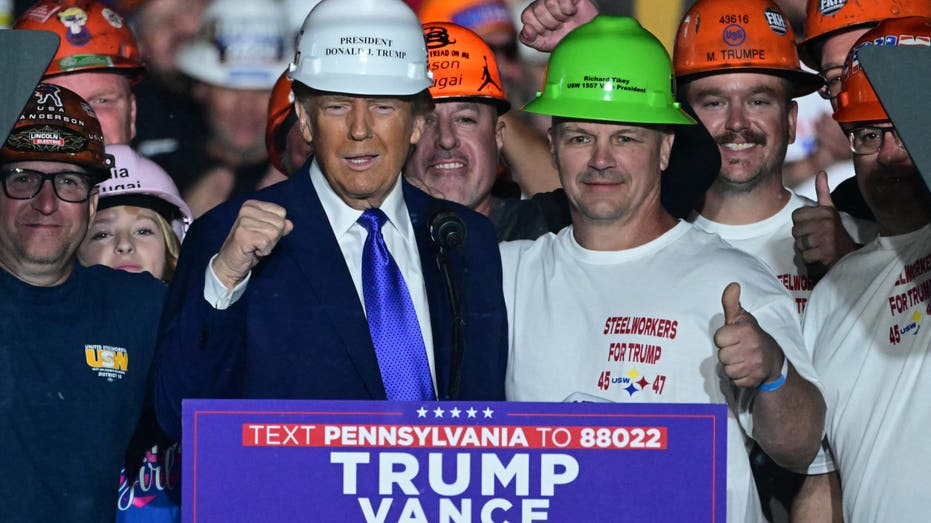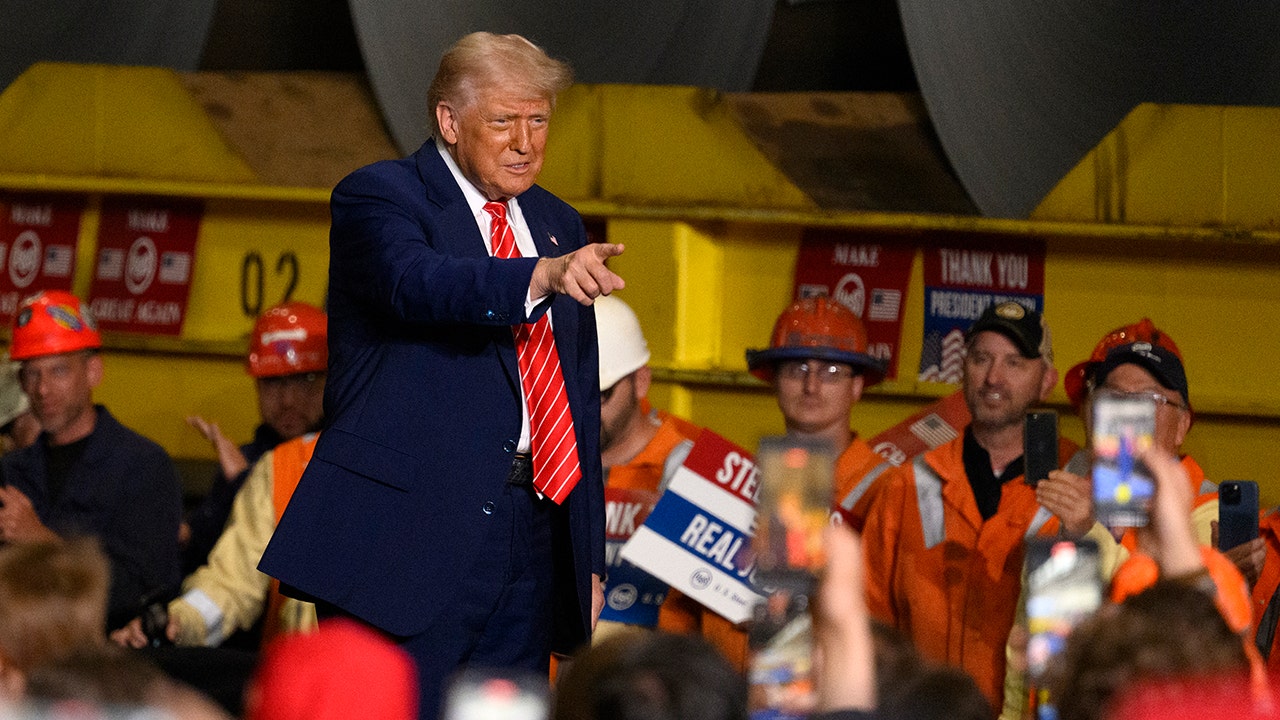Sen. Dave McCormick, R-Pa., joins ‘Mornings with Maria’ to discuss President Donald Trump’s announcement that a U.S.-China trade deal is complete and weighs in on the potential U.S. Steel-Nippon agreement.
On a significant Friday in recent economic history, President Donald Trump issued an executive order that greenlit a merger between U.S. Steel and Japan’s Nippon Steel under the auspices of a National Security Agreement (NSA). This move has far-reaching implications not just for the steel industry, but for American workers and national security as a whole.
The National Security Agreement involves a commitment to inject more than $11 billion into steelmaking investments across the United States by 2028, along with the promise of creating over 100,000 jobs. As both companies highlighted in their joint statement, this partnership is characterized as a means to reinforce communities and families for generations to come, while aiming to restore the prestige and capability of American steelmaking.
Additionally, the merger offers the U.S. government a “golden share,” granting it a role in overseeing governance, domestic production, and trade practices of the newly formed entity. This governance structure ensures that American interests are safeguarded throughout the partnership.
Trump speaks to supporters during a rally at the US Steel-Irvin Works on May 30, 2025, in West Mifflin, Pennsylvania. President Trump visits the steel factory after greenlighting the long-proposed merger between U.S. Steel and Tokyo-based Nippon Steel (Jeff Swensen/Getty Images / Getty Images)
The approval of this merger was not without its hurdles. Initially proposed in 2023 for $14.9 billion, political opposition stalled Nippon Steel’s plans to acquire U.S. Steel. A controversial blocking by then-President Joe Biden in January 2025 cited national security risks, prompting legal action from both companies arguing the review process was flawed.
After a thorough review led by the Trump administration beginning in April, the merger was again presented under a new light. The Trump administration expressed its support, allowing Nippon Steel to invest in U.S. Steel without taking complete ownership, a compromise aimed at addressing the previous administration’s concerns.
During a rally in West Mifflin, Pennsylvania, Trump didn’t hold back in touting the steel deal, emphasizing that it is a means to revitalize the industry. “There will be no layoffs and no outsourcing whatsoever,” he assured the steelworkers present, simultaneously announcing an intention to double tariffs on foreign steel to 50%. Furthermore, he promised that every U.S. steelworker would receive a bonus of $5,000, reinforcing his pro-worker stance.

Former President Joe Biden speaks in the Rose Garden of the White House in Washington, D.C., on Tuesday, May 14, 2024. (Tierney L. Cross/Bloomberg via Getty Images / Getty Images)
The completion of the Department of Justice’s review and receipt of all regulatory approvals are significant milestones, paving the way for finalization of this partnership. However, Trump’s executive order also noted lingering national security concerns, referencing Biden’s previously raised issues. The Committee on Foreign Investment in the United States (CFIUS) remains authorized to enforce measures aimed at protecting national interests until everything is settled.
U.S. Steel has made assurances that they will retain their name, their Pittsburgh headquarters, and their leadership structure, which should provide some sense of stability to stakeholders and workers alike. Nippon Steel’s plans for significant investments aim to modernize facilities in pivotal locations such as Pittsburgh’s Monongahela Valley and Gary Works in Indiana, setting the stage for a potentially bright future.

Members of “Steelworkers for Trump” pose with former US President and Republican presidential candidate Donald Trump after they gifted him a hard hat during a campaign rally at Arnold Palmer Regional Airport in Latrobe, Pennsylvania, October 19, 2024
This merger not only reshapes the landscape of the U.S. steel industry, but also serves as a case study in how political dynamics can influence corporate strategies and national economic policies. As the partnership progresses, its impact on jobs, production, and the broader economy will be a focal point for both industries and the citizens who rely on them.


